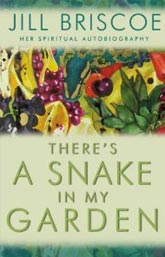 |
| You, oh Lord, turned Juliet’s wailing into dancing... |
I think this blog is turning into a blog for myself, and maybe it also makes God proud, since I repeat everything he teaches me. Today I am going to model a type of prayer that I love. I cannot do inductive Bible study, read Scripture in its original language, or otherwise have an academically informed knowledge of how to use the Bible. But this is one thing I like to do. On occasion, I have prayed for others this way as well, and it is helpful because I know I am praying the Will of God for someone. So, for example, I will pray Psalm 30 and I will pray for my own needs, since I don’t want to improperly discuss my beloved friends on my blog without their consent.
Juliet exalts you, Lord, because you lifted her from the depths and did not let her enemies gloat over her. Lord God, Juliet calls to you for help and you heal her! You brought Juliet up from the realm of death and spared her from going down to the pit. Juliet will sing the praises of the Lord, and encourage all of His faithful people to praise the Lord! Juliet urges others to praise His holy name together with all the saints. Lord God your anger is but a moment, but Your favor lasts a lifetime. Juliet seeks your favor forever, God. She understands that while weeping may dampen her pillow right now, on this night, rejoicing will come in the morning, just as your mercy comes in the morning!When Juliet felt secure in the past she would say, “I will never be shaken.” Lord, you favored Juliet, just as she desired and prayed for, and you made Juliet’s royal mountain stand firm, resolute! It was only when your face was hidden that she grew dismayed and altogether fearful.Then Lord, Juliet called and called to; she raised her voice calling for your mercy, pleaded for your mercy. Juliet understood and called out “What is gained if I am silenced, if I go down to the pit? Will the dust praise you? Will it proclaim your faithfulness?”Juliet reiterated her cry to God Almighty to show her mercy and be merciful, to be her ever present help. She had faith that you would. And you did!You, oh Lord, turned Juliet’s wailing into dancing, and removed the soiled sackcloth and replaced it with the clothes of your Joy oh God!Juliet’s heart will forever sing your praises ceaselessly; she will not—cannot!—be silent. Oh Lord our God, Juliet will praise you forever.
So help me God!




